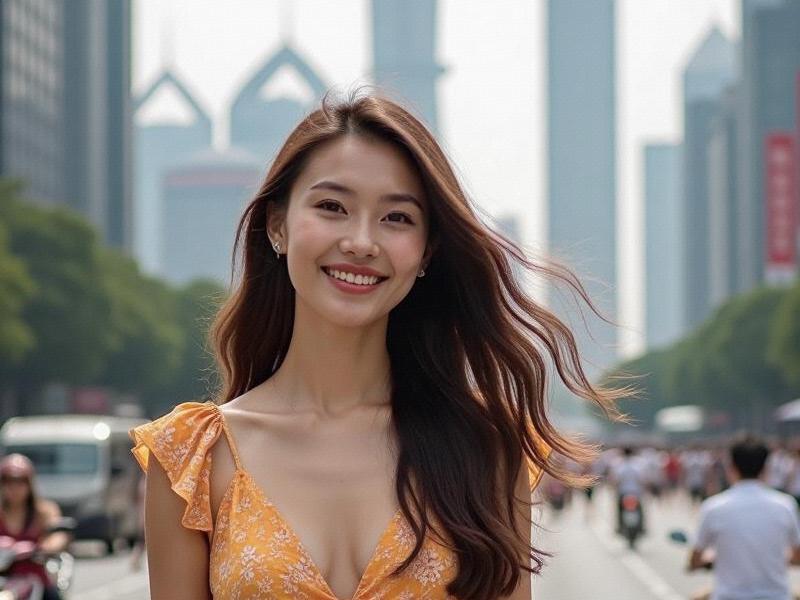This 2,500-word feature explores how Shanghai's women are crafting a new paradigm of Chinese femininity that blends traditional values with cosmopolitan aspirations, examining their evolving roles in business, fashion, and society.

[The Shanghai Woman Phenomenon]
At 8:15 AM on a weekday morning, the metro platforms of People's Square station become a runway of tailored suits and designer handbags as Shanghai's professional women commence their daily commute - a visual manifesto of the city's distinctive feminine energy.
[Historical Context]
Three Generations of Evolution:
1. The Traditional Era (Pre-1990)
- Predominantly domestic roles
- Practical qipao fashion
- Limited career opportunities
2. The Transition Period (1990-2010)
- Emerging white-collar jobs
- Western fashion influences
- Balancing work and family
3. The Global Generation (2010-Present)
- Leadership positions
- Hybrid East-West style
- Redefined life priorities
阿拉爱上海
[2025 Demographic Snapshot]
Key Statistics:
- 52% of managerial positions held by women
- Average marriage age: 32 (up from 25 in 2000)
- 68% with university degrees
- 42% speak fluent English
[Professional Landscape]
Sectors Dominated by Shanghai Women:
1. Finance (58% of mid-level bankers)
2. Technology (45% of startup founders)
3. Luxury Retail (72% of store managers)
4. Creative Industries (68% of agency heads)
[Style Evolution]
Fashion Trends:
- "Power Qipao" - modernized traditional wear
- Minimalist business attire with Shanghainese details
- Sustainable luxury preferences
上海龙凤419手机 - Smart accessory tech integration
[Social Shifts]
Changing Priorities:
1. Career advancement over early marriage
2. Financial independence as priority
3. Selective internationalism
4. Health and wellness focus
[Cultural Influences]
Role Models:
1. Business Moguls (e.g., Zhou Qunfei)
2. Tech Entrepreneurs (e.g., Peggy Yu)
3. Fashion Designers (e.g., Uma Wang)
4. Cultural Ambassadors (e.g., Michelle Yeoh)
[Challenges Faced]
Contemporary Pressures:
- Work-life balance difficulties
- Persistent gender stereotypes
爱上海 - Rising living costs
- Aging population concerns
[Global Recognition]
International Perception:
- Ranked Asia's most stylish women (2024 Vogue survey)
- 3rd in global female entrepreneurship index
- Leading UN gender equality initiatives
[Future Projections]
2025-2030 Trends:
1. Increased political representation
2. Mainstream adoption of hybrid parenting models
3. Growth of women's investment clubs
4. Expansion of female-focused workspaces
[Expert Commentary]
Sociologist Dr. Li Wenjing notes: "Shanghai women represent a unique synthesis - they maintain core Chinese values while fearlessly adopting global perspectives. Their confidence comes not from rejecting tradition, but from selectively reinventing it."
[Conclusion]
The women of Shanghai continue to redefine what it means to be modern Chinese women - not through radical rejection of the past, but through sophisticated synthesis of tradition and innovation. Their evolving identity offers a compelling model for urban femininity in 21st century Asia.